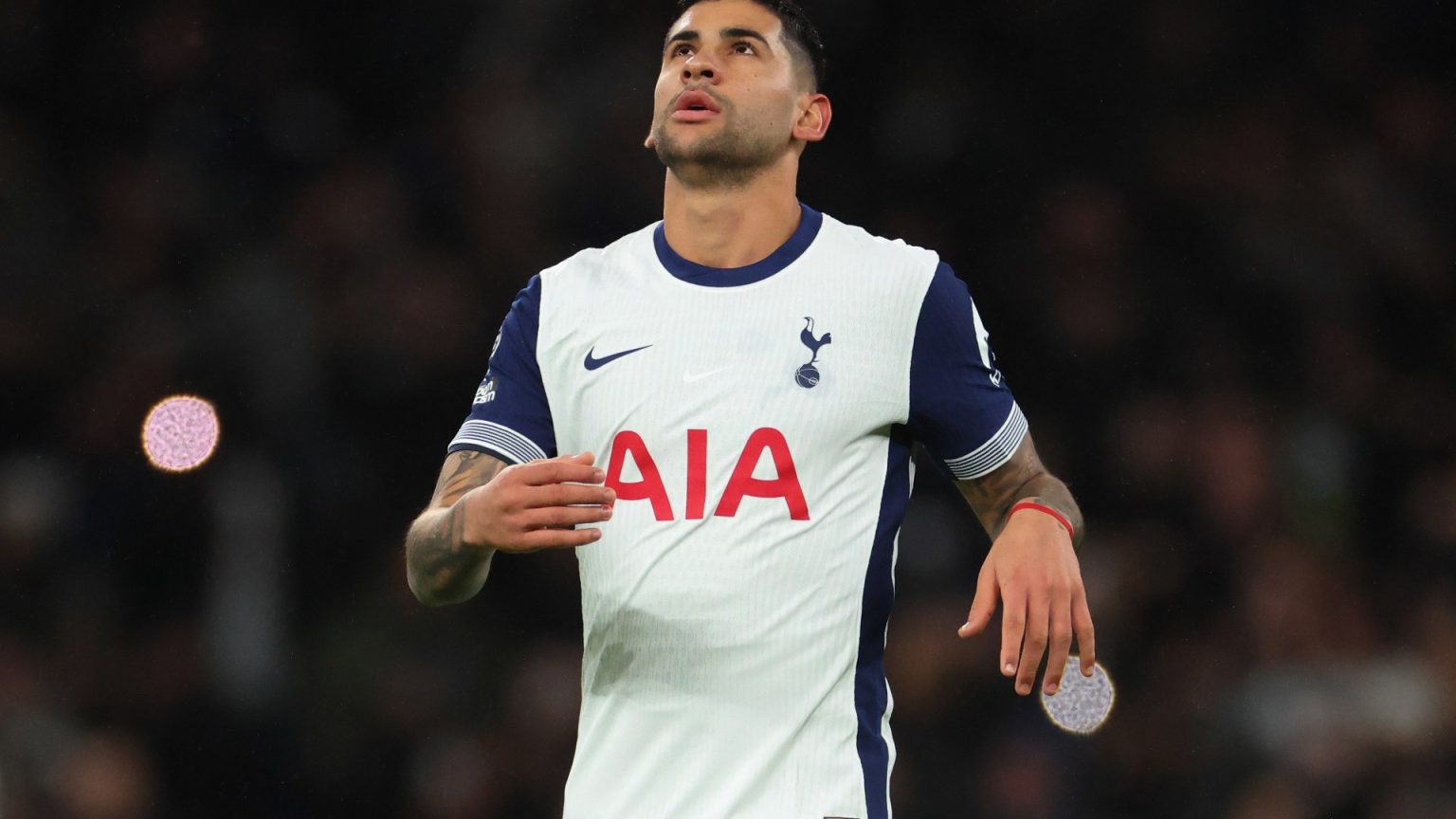Cristian Romero’s thinly veiled critique of Tottenham Hotspur’s leadership reveals a simmering frustration within the club’s ranks. The Argentine defender, known for his robust style of play, didn’t shy away from implying that the responsibility for Tottenham’s underwhelming performances lies squarely with the club’s hierarchy, rather than the players or the coaching staff. Romero’s comments followed a disappointing 4-3 defeat to Chelsea, a match in which Spurs surrendered a 2-0 lead, further highlighting the team’s struggles to maintain consistency and secure victories. This latest setback served as the catalyst for Romero’s pointed remarks, suggesting a growing discontent with the club’s direction. His early exit from the Chelsea game due to a thigh injury, just fifteen minutes after returning from a toe injury, adds another layer of concern to Tottenham’s woes.
Romero’s argument centers on the lack of sustained investment and strategic planning compared to rival clubs like Manchester City, Liverpool, and even Chelsea. He highlighted how these clubs consistently reinvest in their squads, regardless of short-term setbacks, to maintain their competitive edge. He pointedly contrasted their approach with Tottenham’s apparent hesitancy to make significant investments, creating a sense of stagnation and hindering the club’s ability to challenge for major honors. Romero’s assertion that Tottenham “could easily be competing for the title every year” underscores his belief that the club possesses the infrastructure and potential to achieve much more, but is being held back by inadequate investment and decision-making at the top. His call for the “true responsible ones” to be identified suggests a deep-seated belief that the root cause of Tottenham’s problems lies beyond the playing field and within the club’s management structure.
The defender’s frustration resonates with the broader sentiment among Tottenham supporters, who have witnessed a cycle of managerial changes and inconsistent performances in recent years. Romero’s statement, “The last few years, it’s always the same: first, the players, then the coaching staff changes, and it’s always the same people responsible,” clearly implicates the club’s leadership in perpetuating this cycle of underachievement. The constant turnover of managers, without addressing the underlying issues, suggests a lack of clear direction and a failure to address the systemic problems hindering the club’s progress. This sentiment of stagnation and missed opportunities is palpable among the fanbase, who share Romero’s yearning for a more ambitious and successful Tottenham.
Adding to the growing pressure on manager Ange Postecoglou, Tottenham currently sits in 11th place in the Premier League table after just one win in their first five games. While Postecoglou is still relatively new to the role, the early results have been underwhelming, and the pressure to turn things around is mounting. Romero’s comments, however, suggest that Postecoglou is not the primary source of the problem, but rather another victim of the club’s systemic issues. This sentiment could create a complex dynamic within the club, as players and fans alike might be reluctant to place the blame solely on the manager, recognizing the deeper, more entrenched issues at play.
In the aftermath of the Chelsea defeat, midfielder Yves Bissouma took responsibility for the pivotal penalty he conceded, which led to Chelsea’s third goal. His public apology on social media reflected a sense of personal accountability, acknowledging the impact of his mistake on the team’s performance. Bissouma’s gesture, while commendable, also highlights the pressure on individual players to perform in the face of systemic challenges. His statement, “I feel sorry for my teammates, staff, and fans,” indicates a shared sense of frustration and disappointment within the squad.
Romero’s public criticism, coupled with Bissouma’s apology, paints a picture of a club grappling with internal tensions and a growing sense of disillusionment. The defender’s bold statements represent a significant departure from the usual diplomatic pronouncements by players, suggesting a level of frustration that has reached a boiling point. His willingness to speak out, even indirectly, against the club’s hierarchy, could potentially spark a wider conversation about the direction of Tottenham Hotspur and the changes needed to unlock its full potential. The challenge for the club’s leadership now is to address these concerns constructively and demonstrate a commitment to building a sustainable and successful future. The coming weeks and months will be crucial in determining whether Tottenham can overcome these internal challenges and finally realize its ambitions of competing at the highest level.




